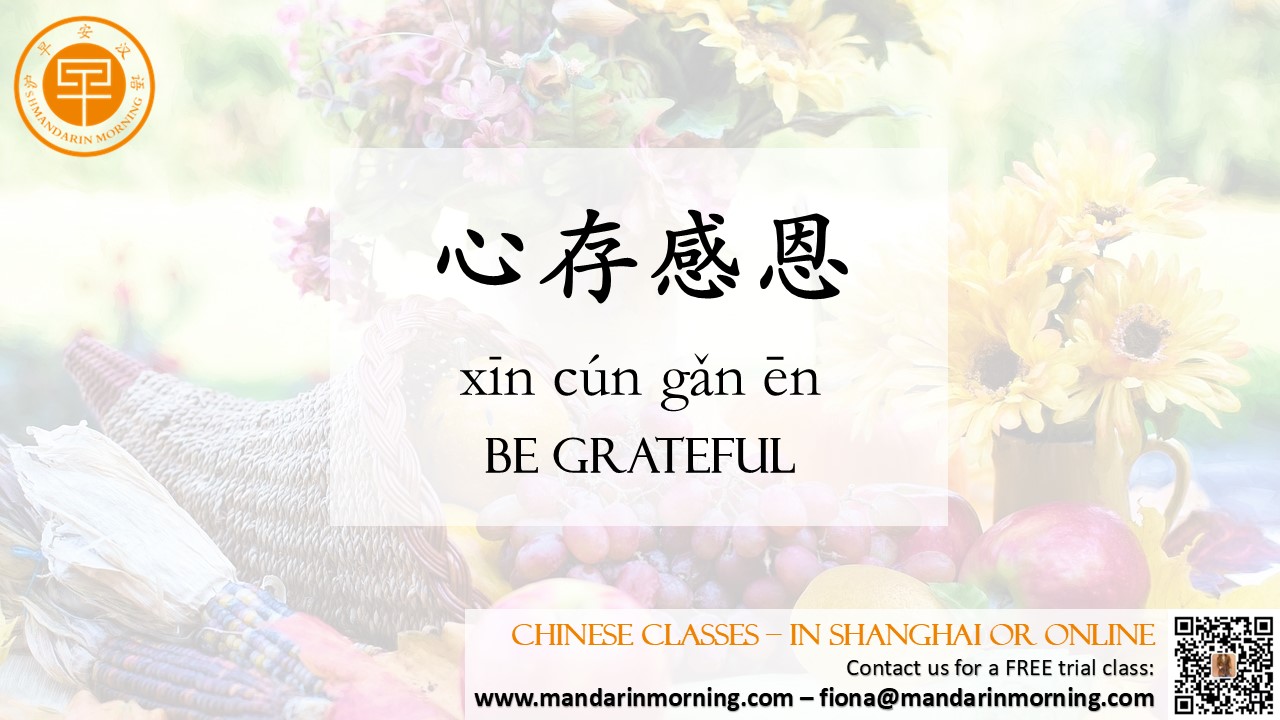【Learn Chinese】Chinese Phrases for Thanksgiving (Part 2) |
| In the U.S., Thanksgiving falls on the fourth Thursday of November, while in Canada, it is celebrated on the second Monday of October. It’s a time for family reunions, delicious feasts, and reflecting on what we’re thankful for. In two one of our article let’s learn 5 more key Chinese phrases that capture typical Thanksgiving activities!  Have a Feast 吃大餐 For many, Thanksgiving is a time to gather with loved ones and share a special meal, whether it’s a simple gathering or a grand feast. It’s not just about the food but about the connection and the moments shared around the table. In Chinese, “have a feast” is 吃大餐 (chī dà cān): 吃 (chī) – “eat” 大餐 (dà cān) – “feast” or “big meal” Sharing food is a major part of social bonding in Chinese culture. Large, communal meals are enjoyed during special occasions like weddings, festivals, and family reunions. A famous example is the Chinese hotpot (火锅; huǒ guō), where everyone gathers around a simmering pot to cook and eat together—a meal that symbolizes unity and togetherness. Sing Karaoke 唱卡拉OK For some, singing karaoke is a fun way to liven up Thanksgiving night! It adds an extra layer of entertainment after the meal. In Chinese, “sing karaoke” is 唱卡拉OK (chàng kǎ lā OK): 唱 (chàng) – “sing” 卡拉OK (kǎ lā OK) – “karaoke” 卡拉OK (karaoke) is a direct phonetic translation of the Japanese word “karaoke.” Karaoke is hugely popular in Chinese-speaking countries, where families and friends gather at karaoke venues known as KTV (Karaoke Television) to enjoy a night of singing together. Watch Movies 看电影 After the Thanksgiving meal, many families relax by watching movies together. A classic Thanksgiving movie is A Charlie Brown Thanksgiving, the tenth prime-time animated television special. First aired in 1973, it continues to be a beloved family favorite during the holiday season. Whether it’s a holiday classic or a new release, watching a movie is a cozy way to end the day. In Chinese, “watch movies” is 看电影 (kàn diàn yǐng): 电影 (diàn yǐng) – “movie” (literally, “electric shadow”) In Chinese-speaking cultures, watching movies is also a popular way to unwind, especially during festive occasions like the Lunar New Year. Shopping Online 上网购物 Black Friday deals usually kick off around Thanksgiving, and many people start shopping online. It marks the beginning of the holiday shopping season, with discounts and sales driving people to their favorite websites. In Chinese, “shop/shopping online” is 上网购物 (shàng wǎng gòu wù): 上网 (shàng wǎng) – “go online” 购物 (gòu wù) – “shop” or “purchase” 上网购物 can be shortened to 网购 (wǎng gòu), which can also mean “online shopping.” Just like Black Friday in the U.S., China has its own shopping festival. One of the most famous is the “Singles’ Day” or “Double 11” festival, which takes place on November 11th each year. It has grown into one of the world’s largest online shopping events, with massive discounts and promotions. Be Grateful 心存感恩 At its heart, Thanksgiving is all about being thankful for the good things in life—family, friends, health, and more. It’s a time to reflect and express gratitude. In Chinese, “be grateful” is 心存感恩 (xīn cún gǎn ēn): 心存 (xīn cún) – “hold in the heart” 感恩 (gǎn ēn) – “gratitude” or “be grateful/thankful” Gratitude is an important concept in Chinese culture as well, where family and respect for elders play a central role in expressions of thanks. |